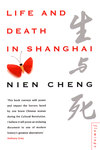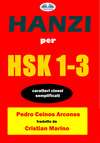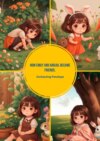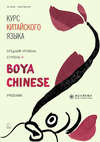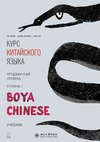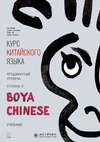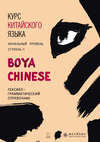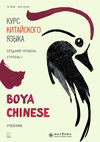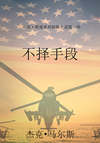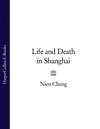Kitabı oku: «Life and Death in Shanghai», sayfa 8
‘It happened in Chungking in the summer of 1941. Daddy and I were about to leave for Canberra with the first group of Chinese diplomats and their families to open the new Chinese Legation there. Two days before we were scheduled to leave, we had a prolonged and severe air raid. A bomb landed on the tennis court right in front of our house. The blast tore off the roof and part of the house collapsed,’ I said.
‘Goodness! Where were you?’ my daughter asked.
‘I was in the shelter under the house. Daddy was in the shelter at his office. The shelters in Chungking were deep caves dug into the side of mountains, very deep and quite safe.’
‘Did you lose everything in the house?’
‘Fortunately we had put the packed suitcases under the stairs when the alarm sounded. The stairs collapsed and buried the suitcases underneath. We managed to dig three of them out. Of course they were in a terrible state. When we got to Hong Kong we had to buy everything all over again. We didn’t have time to get the furniture out of the rubble. To this day, I have no idea what happened to it,’ I told her. ‘So you see, we did in fact lose almost everything we had.’
‘You never told me any of this.’
‘It happened such a long time ago, before you were born, when I was not much older than you are now. I had actually forgotten all about it. It was the looting by the Red Guards that made me remember it again.’
‘Oh, Mummy, how could you have forgotten something terrible like that? You lost everything!’
‘Yes, I did forget. But it was wartime. People were being bombed out all over the place. Bad experience is more bearable when you are not the only sufferer.’
‘I’ll never forget how our house looks today, not in a million years,’ my daughter said.
‘It’s always best to look ahead and not backwards. Possessions are not important. Think of those beautiful porcelain pieces I had. Before they came to me, they had all passed through the hands of many people, surviving wars and natural disasters. I got them only because someone else lost them. While I had them, I enjoyed them; now some other people will enjoy them. Life itself is transitory. Possessions are not important.’
‘I’m glad you are so philosophical,’ she said, smiling for the first time since she had come home. ‘Of course, we must not let our happiness be dependent on possessions. We still have each other. We can be happy together even if we are poor.’
‘We won’t be poor. I have already told you about the assets abroad. We will always be better off than most others in China. You are worn out. I can see dark shadows under your eyes. You had better try to get some rest.’
Meiping sat on in silence for a while longer, lost in thought. When she stood up she declared, ‘Mummy, we will weather the storm together. I still believe in the future of our country. Things will change. They can’t always be unfair like this. There are good leaders in the Party, such as Premier Chou, and many others.’
‘Well, I wonder what they are doing now, allowing so many innocent people to suffer?’
‘Don’t lose heart! Surely they will do something when the time comes. I love China! I love my country even though it is not always good or right,’ my daughter declared in a firm voice.
Her words brought tears to my eyes. I also had a deep and abiding love for the land of my ancestors, even though, because of my class status, I had become an outcast.
CHAPTER 4 House Arrest
I WOKE TO THE sound of a heavy downpour. After a while the rain settled to a steady drizzle. The wet garden, littered with ashes and half-burned books, was a sorrowful sight. I stood on the terrace contemplating this depressing scene and wondering what to do.
The morning passed slowly. There was no sign of the Red Guards. I wandered around the house aimlessly. There was no book to read. On the bookshelves covering two sides of the walls of my study only the four slim volumes of The Collected Works of Mao Tze-tung and the small book of his quotations in the red plastic cover remained. I couldn’t do any sewing or knitting; the Red Guards had so messed up everything that I did not know where my knitting wool or needles and thread were. I couldn’t write a letter or draw a picture; all the paper and envelopes were torn and I did not know where my pen was. I couldn’t listen to the radio as the radio sets in the house were locked up with the ‘valuables’. I could only sit there staring at the huge pile of debris in each room that we didn’t dare to remove.
In the afternoon the rain stopped and the sun came out. Several parades passed the house but none of the Red Guards came back. Lao Chao brought me the day’s issue of the Shanghai Liberation Daily, which always came out in the afternoon though it was a morning paper. On its front page, in bold print, was reprinted a leading article from the People’s Daily in Peking, the official organ of the Central Committee of the Communist Party. Since all Chinese newspapers were government-owned and voiced government policy, especially the People’s Daily, I recognized the importance of this article and read it carefully. Written in stirring revolutionary language, the article seemed superficially to be aimed at stimulating hatred for the capitalist class and rallying the masses to join in the activities of the Cultural Revolution. But I noticed that the articles also made the claim that officials of the Party and government administration in many parts of China had pursued a capitalist line of policy opposed to Mao Tze-tung’s teachings. The writer of this article called these unnamed officials ‘capitalist-roaders’. The ‘revolutionary masses’, the article said, must identify these enemies, because ‘our Great Leader Chairman Mao trusted the revolutionary masses and had said their eyes were bright and clear as snow.’
The article warned the ‘revolutionary masses’ that the capitalist class was cunning and made the allegation that its members hoarded gold and secreted weapons in their homes so that when an attack against China came from abroad they could cooperate with the enemy to become a fifth column. It praised the revolutionary action of the Red Guards, calling them ‘little revolutionary generals’. In conclusion, the article mentioned the existence of a ‘counter-current’ against the Cultural Revolution and the Red Guards. It warned everybody to beware of this counter-current and to avoid being influenced by it. Those ‘capitalist-roaders’ who had a consistent ‘revisionist’ outlook and tried to ‘protect’ the capitalist class would be dealt with by the ‘revolutionary masses’ and be swept away onto the rubbish heap of history.
The article was frighteningly irresponsible because no clear definition was offered for either the ‘revolutionary masses’ who were to identify the enemies and to punish them or the ‘capitalist-roaders’ who were to be the victims. The article left me in no doubt that Mao Tze-tung and his specially selected committee to conduct the Cultural Revolution intended to expand the scope of their attack and increase the degree of violence against those they had listed as victims. The chilling tone of the article could not be ignored. Since a leading article in the People’s Daily was to be obeyed immediately, the tempo of the Cultural Revolution in Shanghai was sure to escalate. The Party Secretariat and the Municipal Government would be quite unable to implement the Ten-Point Resolution. I expected the Red Guards to come back soon and I expected their attitude to become even more hostile and intransigent. I thought it was only fair to urge my servants to leave my house and go back to their homes.
The cook said that since he did not live in, he could come and go freely until the Red Guards told him to stay away. Lao Chao said, ‘I’m not afraid to remain. You need someone to go to the market to buy food. It’s not safe for you to go out. I am from a poor peasant family. My son is in the Army and is a Party member. We are the true proletariat. The Red Guards have already smashed and confiscated everything. What else can they do? If they tell me to leave, I must go. Otherwise, I will stay.’ Chen Mah wept and said she wanted to stay with my daughter.
At a time like this, the loyalty of my servants was something very noble. I was deeply moved. I did not insist on their leaving immediately because having them in the house was better than waiting for the Red Guards alone. However, I wrote to Chen Mah’s daughter who lived in another province when the cook had bought me some paper from the market. I told her to come and fetch her mother home. I felt more responsible for Chen Mah than for the cook and Lao Chao.
When my daughter came home with the news that the Municipal Government building was besieged by the Red Guards demanding the immediate withdrawal of the Ten-Point Resolution, denounced as a document offering protection to the capitalist class, I was not surprised. She also told me that a long-time associate of Chiang Ching, Mao’s wife, had been appointed to conduct the Cultural Revolution in Shanghai.
‘His name is Chang Chuan-chiao. Someone at our film studio said that he had been a journalist in Shanghai in the thirties when Chiang Ching was an actress. Those in the studio who used to know them both are terrified. Some of them have packed their bags in preparation for going to jail. They seem to believe Chang Chuan-chiao will put them under detention so that they could be prevented from talking about him and Chiang Ching in the thirties. Mummy, do you think those innocent actresses and actors will really go to jail?’ My daughter was both puzzled and shocked by what she had heard at her film studio. Not knowing anything about Shanghai in the thirties, I had no idea what Chiang Ching and Chang Chuan-chiao were afraid of nor what the actresses and actors at the film studio knew about them that was so dangerous.
‘Can you stay at home tonight?’ I asked her as I hoped to spend a quiet evening with her to talk over the situation.
‘I’m afraid not, Mummy. I really dashed back to see how you are and whether the Red Guards had come back. The others are all remaining at the studio. An urgent meeting has been called to discuss an important article in the People’s Daily. I was told it was written by someone close to Chairman Mao so it is very important and represents Chairman Mao’s viewpoint,’ she said hurriedly and looked at her watch. ‘Goodness! I must run!’
Lao Chao brought her a bowl of noodles and said, ‘Eat some of it. It has been cooled. You can’t go without food.’
My daughter took the chopsticks and put some noodles into her mouth, swallowed and said to Lao Chao, ‘Thanks a lot. I really must go.’
She gave me a hug and dashed out of the house. I had much to say to her, but there was no time to say anything.
Lao Chao brought me his transistor radio so that I could listen to the evening news. Every station I could get was broadcasting the leading article of the People’s Daily. The announcer read it in the excited, high-pitched voice I was to come to know well during the following years. I left the radio on in the hope of hearing some other item of news, but there was nothing else. By the time I fell into an uneasy sleep I had listened to the article so many times that I almost knew it by heart.
The next morning, the cook brought the news that there was very little food at the market as the peasants from the surrounding countryside, who used to bring vegetables, fish and shrimps to the markets, had answered Chairman Mao’s call and joined the ranks of ‘revolutionary masses’ to take part in the Cultural Revolution. They had come into the city in large numbers and occupied several hotels in the business section of Shanghai. Their leaders demanded, and got, from the frightened hotel managers, free food and service. As news of the luxury of hot running water, inner-spring mattresses and carpeted floors filtered back to the communes, women and children accompanied the men to the city to seize the opportunity for a free holiday. In the meantime, Red Guards were arriving at the railway station from Peking and other northern cities to ‘exchange revolutionary experiences’ with the Shanghai Red Guards. At the same time the Shanghai Red Guards were travelling to Peking in the hope of being reviewed by Chairman Mao. The Red Guards commandeered trains and ships for their transport, leaving normal passengers and goods stranded at stations and wharves. Nobody dared to oppose the Red Guards. Since the mention of ‘capitalist-roaders’ by the leading article of the People’s Daily, the officials were paralysed with fear.
The denunciation of its Ten-Point Resolution put the Shanghai Municipal Government on the defensive. To avoid giving any further cause for complaint to the Red Guards, it provided free meals for the incoming and outgoing Red Guards. Food stalls at the railway station and wharves were set up. All the shops making steamed buns and the former White Russian bakeries, now State-owned, were mobilized to produce buns and bread for the Red Guards. Determined to find fault with the Shanghai officials, the Red Guards denounced the western-style bread made by the bakeries as ‘foreign food’ and refused to eat it. At the same time, factory workers decided to join the ‘revolutionary masses’ by organizing their own Cultural Revolution groups. To embarrass the Shanghai officials, they made extravagant economic demands. To protect themselves and to win the support of the workers, the officials authorized payments of bonuses and benefits to the workers. After only a few days, the cash reserves of the local banks were exhausted. The workers whose demands were not met became so infuriated that they joined the Red Guards to attack the Municipal Government and its leading officials. Behind all these activities of the Red Guards and the workers against the Municipal Government was the hand of Chang Chuan-chiao, who directed their revolutionary activities from the comfort of a suite of rooms at the Peace Hotel which became the temporary headquarters of the Maoist leaders when they came to Shanghai, until the Shanghai Party Secretariat and Municipal Government were toppled by the Revolutionaries in January of the following year.
A few of my daughter’s friends were high school teachers. Because they also wore the red armbands, they could drop in to see us without attracting undue attention. Lao Chao also took the opportunity of the lull of the Red Guards’ activities against me to go out to visit his friends and mingle with the crowds on the streets. The cook’s son, a factory worker, paid his father a visit and told him the conditions at his place of work. The stories they related were so astonishing and the reluctance of the Shanghai Party and government officials to exercise their power was so unusual that I began to wonder whether there wasn’t something more to the Cultural Revolution than its declared purpose of destroying the remnants of the capitalist class and purifying the ranks of officials and intellectuals.
One day, Hsiao Hsu, a schoolteacher friend of Meiping, came to our house to see her when she was away at the film studio. He told me that the Red Guards had dismantled the Catholic Cathedral’s twin spires which were a landmark in Shanghai. During the night, he said, the Red Guards had broken into the Shanghai Municipal Library and destroyed a large number of valuable books. When they went to the Historical Museum, they failed to break down the strong iron gate. So they went to the home of its director and dragged the old man from his sickbed to a struggle meeting.
‘The old man is now in hospital. Some said he has died already. The Red Guards are getting quite wild. I think you should take Meiping and try to escape to Hong Kong,’ he said.
‘Do you think Meiping would want to go?’ I asked him this question because once when he was in our house, just before I was to make a trip to Hong Kong, both he and my daughter said they would never want to live as second-class citizens in colonial Hong Kong.
‘The situation is different now. After the Cultural Revolution, young people from non-working-class family backgrounds will have no future in China at all. In the past, if we worked twice as hard as the young people of the working class and expected no advancement, we could have a reasonably happy private life. In future, we will be like the Untouchables in India, whose children and children’s children suffer too. The only way out is to escape. You have many friends abroad. Why don’t you take Meiping and go?’ he urged me.
‘I think it’s too late to escape now. You know the penalty of attempting to escape to Hong Kong is very serious, something like ten or twenty years in prison,’ I said.
‘It’s not too late. I have made some investigations. The whole railway system is in a state of confusion. No one buys a ticket or has a travel permit any more. Red Guards are going all over the country by just getting on a train. No one asks any questions. I have been both to the station and the wharf. There are no ticket collectors at either place. No one in authority at all.’
‘I think the moment I get on a train, I would be recognized and dragged off or beaten.’
‘You can both be disguised as Red Guards. I will get you some red cloth for armbands. And I will write the three characters for “Red Guard” for you. I have done quite a few of these for our students,’ he said.
‘I think I’m too old to be taken for a Red Guard.’
‘All you have to do is to have your hair cut short, take the book of quotations by Chairman Mao in your hand and pretend to be absorbed in it. You can even wear a cap to cover your hair. If anyone should question you, you can say you are a teacher. As for Meiping, she can easily pass for a Red Guard,’ he said impatiently.
When I shook my head again, he declared, ‘You are foolish not to try. In any case, talk it over with Meiping when she comes home.’
(I saw Hsiao Hsu again in Hong Kong in 1980, when I came out of China. He told me that he was turned back at the border when he tried to reach Hong Kong by train. But later, he swam to Macao. A few years later he got to Hong Kong where he worked hard and saved money. In 1980 he was the part-owner of a toy factory in Kowloon that exports toys to many parts of the world. Since conditions in China had changed for the better after Mao died, he was thinking of making a trip to Shanghai to visit his mother.)
I was in the bathroom when I heard the sound of furious hammering on the front gate again. Halfway down the stairs, I came face to face with a little girl about fifteen years of age. She was dressed in a khaki-coloured uniform with a cap sitting straight on her head. The edge of the cap covered her eyebrows so that her eyes peered from underneath it. Her small waist was gathered in by a wide leather belt with a shiny buckle. In her hand she carried a leather whip.
‘Are you the class enemy of this house? How well fed you look! Your cheeks are smooth and your eyes are bold. You have been fattened by the blood and toil of the peasants and workers. But now things are going to be different! You’ll have to pay for your criminal deeds! Come with me!’ From her accent I knew she was a Red Guard from Peking.
I followed her downstairs. Several boys and girls in similar attire were in the hall by the door of the dining room. She went into the room and I followed her.
‘Kneel down!’ one of the boys shouted. Simultaneously his stick landed on my back. Another boy hit the glass door of the cabinet. It broke. He swung the stick round and hit the back of my knee. The decision of whether or not I should comply with the kneeling order was taken out of my hands. I collapsed on the floor.
‘Where is the cash?’ one of them asked.
‘The Red Guards who were here before took it.’
‘Did they take all of it?’
‘No, they left a few hundred yuan for me to live on.’
‘Where is it?’
‘In a drawer in my desk.’
The boy kicked my leg as he passed me going upstairs with the others. The girl with the whip was left to watch me. She swung her whip in the air back and forth, missing my head by a fraction each time. The others came down again with the drawer and tipped the bank notes onto the dining table. They told me to turn round to face the wall. I could hear them counting the notes.
There was the sound of more people entering the house. I wondered if the front gate had been left open but I heard a man’s voice ordering Lao Chao to call Chen Mah and the cook to the hall. Then he said to someone, ‘Take them upstairs and question them.’
The Red Guards went into the hall and then they all came into the dining room.
‘Here she is,’ someone said.
‘You may go now. We will deal with her ourselves,’ said the same person who had spoken before.
I heard the Red Guards leave the house, hitting the walls and the furniture with their sticks and whips as they went out. They banged the front door so hard that the house shook.
‘Stand up! Come over here!’ the man yelled.
I stood up and turned to face the new intruders. The man who spoke was of medium height, slightly built, wearing a pair of tinted spectacles. There were two other men and a woman in the room. Although they all wore the cotton trousers and ill-fitting shirts and jackets of the working class, they spoke like people of some education. On their armbands were the three Chinese characters for ‘Revolutionaries’.
They all sat down in a half moon facing where I stood. The man said to me, ‘You are the class enemy of this house. You are guilty of conspiring with foreign powers. It’s written on the Big Character Poster on your front gate. Do you deny it?’
‘Of course, I deny it! Who are you anyway? What do you want?’
‘We are the Proletarian Revolutionaries.’
‘Never heard of such a tide,’ I said.
‘You are going to hear a lot about us. We are the Revolutionaries who represent the working class which is the ruling class in China,’ he said with a lift of his chin.
‘Isn’t the working class in China represented by the Chinese Communist Party?’ I asked.
‘Shut up! We don’t have to justify ourselves to you. You are an arrogant class enemy! You have no right to discuss who represents the working class in China. We are responding to Chairman Mao’s call to take part in the Great Proletarian Cultural Revolution. That’s quite good enough,’ said the woman.
‘You are a class enemy and a running dog of the Anglo-American imperialists. You went to an American-endowed university in Peking and then to a British university in London so you were trained from an early age to serve the imperialists,’ the man said.
I remained silent as it seemed pointless to talk to them.
‘Is it because you are ashamed that you do not speak?’ the woman asked me.
‘Why should I be ashamed? Many graduates of Yenching University have become leaders of the Communist Party. To have been a student there doesn’t mean I am a running dog of anybody. The London School of Economics was a left-wing college founded by the Fabian Socialists of Britain. In fact, it was there that I first read the Communist Party Manifesto by Marx and Engels,’ I told her.
‘Ha, ha, ha! What a joke! A class enemy and a running dog of the imperialists has read the Communist Party Manifesto! The next thing you are going to say is you want to join the Communist Party,’ the man with the tinted glasses said sarcastically.
The woman said, ‘Lenin denounced the Fabian Socialists as reformers. They were not true socialists because they did not advocate revolution by violence. Don’t try to ingratiate yourself with us. Your only way out is to come clean.’
‘I’m a law-abiding citizen,’ I declared. ‘I worked for a foreign firm and had no access to government secrets. I do not know any foreign governments and they do not know me.’
Another man said, ‘You do know and are on friendly terms with a number of foreign government officials.’
‘You needn’t get so excited. All the senior staff of foreign firms are spies. You are not the only one,’ joined another man.
‘Why should foreign governments trust us?’ I asked them. ‘What hold have they got over people like us who live in China?’
‘Ah! Nearly all of you have money abroad. You don’t deny you yourself have money abroad,’ the man said.
‘That’s a hold on you. They can confiscate your money,’ added the woman.
‘You don’t understand. Governments abroad cannot interfere with the banks. They cannot confiscate the deposit of anybody,’ I told them.
‘Why do you keep money abroad anyway? Why should an honest Chinese want to keep money abroad?’
‘I make trips to Hong Kong and have to pay for my food and hotel bills when I am there. I’m not allowed to take my Chinese money with me, as you know. There is foreign-exchange control. Each time I went out of China, I was allowed only 5 US dollars. Besides, I have to bring money into China to buy coal and other things from the Overseas Chinese Store,’ I explained. ‘I have some money abroad, but I have a lot more money in Shanghai. I have this house. I have my only child here. She is worth more than anything in the world to me. She is a member of the Communist Youth League. Why should I oppose the Communist Party and the People’s Government?’
‘You would oppose the Communist Party even if your daughter were a Party member. It’s your class instinct,’ the man with the tinted glasses, who seemed to be their leader, said.
Several other men and women came into the room, followed by my servants. The man looked at them. The newcomers shook their heads. Evidently they had not got what they wanted from my servants.
The man with the tinted spectacles assumed a severe tone of voice and asked me, ‘Where have you hidden your gold and weapons?’
‘What gold and weapons?’ I was surprised by his question until I remembered the leading article of the People’s Daily. It had accused members of the capitalist class of secreting gold and weapons in order to form a fifth column when foreign powers invaded China.
‘You know what gold and weapons! You had better come clean.’
‘I have no gold or weapons. The Red Guards have been here. They went through the entire house. They did not find any gold or weapons.’
‘You are clever. You hid them. Our Great Leader told us that the class enemies are secreting gold and weapons. He can’t be wrong.’
‘We are going to find the gold and weapons, if you don’t come clean. Then you will be severely punished,’ said their leader. ‘Come along! They must be somewhere in this house.’
I wondered whether they really believed the leading article or whether they just had to appear to believe it. The fact was that soon after the Communist takeover in 1949, possession of firearms was declared illegal. Those who had them had to hand them over to the government and were subject to a house search by the police. The former Kuomintang military and police personnel were arrested and ‘reformed’ in labour camps. Their families all had to move out of their homes. Therefore, it seemed utterly absurd to say some Chinese could still have weapons in their homes in 1966.
However, the Revolutionaries took my servants and me all over the house. They ripped open mattresses, cut the upholstery of the chairs and sofas, removed tiles from the walls of the bathrooms, climbed into the fireplace and poked into the chimney, lifted floorboards, got on to the roof, fished in the water tank under the ceiling and crawled under the floor to examine the pipes. All the while, they watched the facial expression of my servants and myself.
I had lost track of time but darkness had long descended on the city when they decided to dig up the garden. The sky was overcast and it was a dark night. They switched on the lights on the terrace and told Lao Chao to bring his flashlight. When they came to the coalshed, my servants and I were told to move the coal to a corner of the garden they had already searched. The damp ash-covered lawn had been trampled into a sea of mud; all the flowerbeds had been dug up and spades were sunk into the earth around the shrubs. They even pulled plants out of their pots. But they found nothing for nothing was there to be found. The Revolutionaries, my servants and I were all covered with mud, ashes and sweat.
In the end, physical exhaustion got the better of their revolutionary zeal. We were told to go back to the house. They were fuming with rage because they had lost face in not finding anything. I knew that unless I did something to save their face they were going to vent their anger on me. If only I could produce something in the way of gold such as a ring or a bracelet. I remembered my jewellery sealed in Meiping’s study.
‘The Red Guards put my gold rings and bracelets in the sealed room. Perhaps you could open the room and take them and let the Red Guards know,’ I said to the woman.
‘Don’t pretend to be stupid. We are looking for gold bars,’ she said.
We were standing in the hall. The man with the tinted glasses had removed them to reveal bloodshot eyes. He glanced at my servants cowering by the kitchen door and he looked at his fellow Revolutionaries around him. Then he glared at me. Suddenly he shouted, ‘Where have you hidden the gold and weapons?’ and took a step towards me threateningly.
I was so weary that I could hardly stand. Making an effort, I said, ‘There simply aren’t any. If there were, wouldn’t you have found them already?’
The fact he had been proven wrong was intolerable to him. Staring at me with pure hatred, he said, ‘Not necessarily. We did not break open the walls.’
He stood very close to me. I could see every detail of his sneering face. Although I found him extremely repulsive and would have liked to step back a pace or two, I did not move for I did not want him to think I was afraid of him. I simply said slowly, in a normal and friendly voice, ‘You must be reasonable. If I had hidden anything in the walls, I could not have done it alone. I would have needed a plasterer to put the walls back again. All workmen work for State-controlled businesses. They would have to report to their Party Secretary the sort of work they did.’ I was so tired that it was a real effort to speak.
